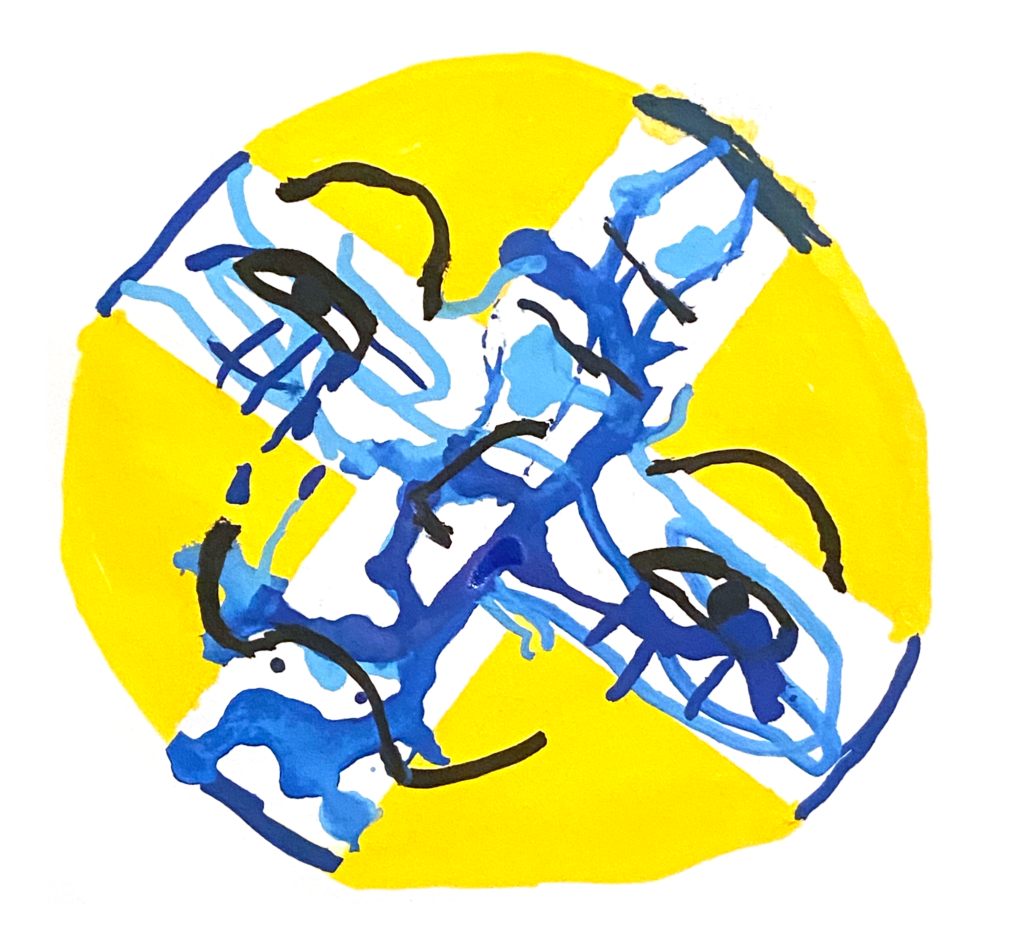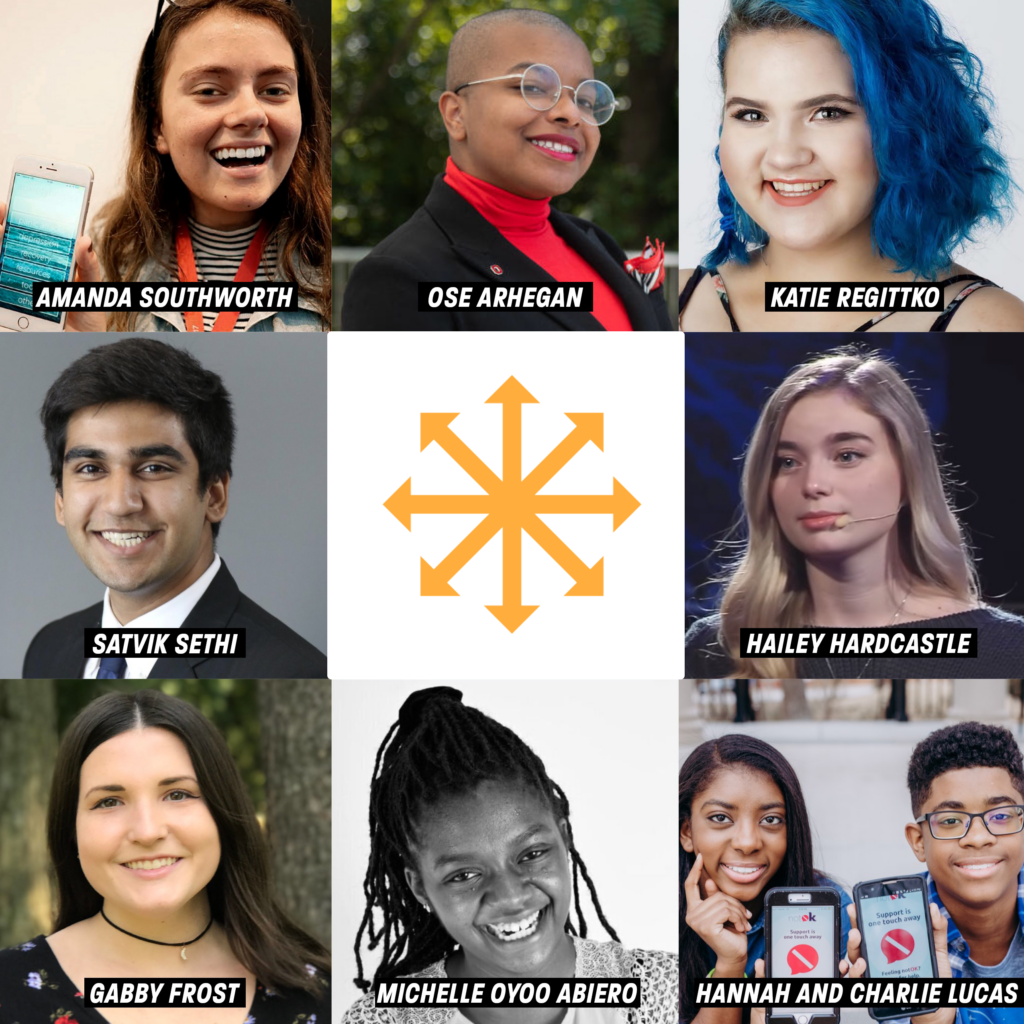
Everyone needs a little mental health help sometimes. Life can be overwhelming, and when you see something in the world that needs changing, the stress of figuring out how to change it or deal with it can be a lot, even for young activists. Here are nine youth mental health activists who used their struggles with mental health to make change in their communities and around the world.

- Ose Arheghan, 19, Ohio
Ose focused their efforts on issues facing the LGBTQ+ community from a young age. In 8th grade, they wrote a series of articles on the intersections of mental health, racial identity and being queer for their school newspaper. “I had to fight for the rights I didn’t have because no one was fighting for them fully for me,” Ose told NBC News. “Your voice is your power.” They joined their high school’s proficiency subcomittee to change policies around discrimination against individuals who hold LGBTQ+ identities, and lobbied congress in Washington D.C. for sex education that was inclusive for LGBTQ+ teens. Since high school, they’ve also become an ambassador for The Trevor Project, which focuses on suicide prevention in LGBTQ+ youth.
- Katie Regittko, 21, North Carolina
Also starting in middle school, Katie worked for the LGBTQ Center of Raleigh, focusing on youth LGBTQ+ rights. Between 2014 and 2018 she served as Youth Outreach Chair, Youth Chair, and Support Group leader. Katie also did work with GLSEN, where she served on the Transgender Student Rights Advisory Committee, National Student Council, National Advisory Council and worked as the Youth Blog Associate.
Katie also did work for eating disorder awareness, becoming the youngest person in the country to organize a fundraiser walk for the National Eating Disorders Organization in 2016, and organized walks annually until Spring 2020, helping to raise over $100,000 for eating disorder awareness, treatment, and prevention. “I’m incredibly passionate about helping others, and that’s been the strongest constant throughout my life,” states Katie on their website. “I know that if I help at least one person along the way, that it will have all been worth it.”
- Amanda Southworth, 19, California
In 2018, at age 16, Amanda developed an app called AnxietyHelper which helps teens through panic attacks, anxiety and depression using games and exercises. It further provides location-based resources for those who want to seek professional help.
Amanda found solace in coding after years of anxiety attacks and suicidal ideation. “I can honestly say that technology has saved my life,” Amanda told USA Today. “When I found something greater than myself, I realized that I am not just a person with a life. I am a person who has something to contribute.” After the success of her app, she dropped out of high school to found a software nonprofit called Astra Labs, and is developing more apps today.
- Hailey Hardcastle, 20, Oregon
You know how when you work and fall ill, you can just take a sick day? What if you could do that for school when you needed a mental health day? ”All of us have a brain that needs to be cared for in similar ways that we care for our physical well-being,” says Hailey in her 2020 TEDTalk on mental health. “Our head and our body are connected by much more than just our neck after all.” In 2019, Hailey and a team of high school student leaders lobbied in Oregon for a law that would allow students to request days off for mental health, and they won. Now Hailey is working to expand this policy to other states and is recruiting other student leaders to learn how to do what she did. Currently attending the University of Oregon, she volunteers for the Oregon School Based Health Alliance as a policy advisor.
- Michelle Oyoo Abiero, 19, Kenya
Our only international entry on this list, Kenyan teen Michelle was inspired by wanting to help a friend who confided in her about her mental health struggles. She went on to found Project Fmile in 2017 to raise awareness for mental health problems for Kenyan teens while also working to reduce the stigma that prevents speaking out about it. Since then, Michelle has expanded her work from just mental disorders to include bullying, body image, sexual assault and unstable households. Hundreds of Kenyan teens have used the resources Project Fmile provides including mental health campaigns, awareness events and workshops and the stories of those brave enough to share their struggles. Michelle hopes that one day, no one will have to hide behind a fake smile, or “fmile,” as they struggle alone. “Your passion should be your drive,” Michelle tells Kidizenship when asked about youth advocacy. “If you’re frustrated by something and would like for it to change, be the change you’d like to see.”
- Hannah, 18, and Charlie Lucas, 16, Georgia
After suffering bullying and harassment due to symptoms of a chronic illness, Hannah Lucas started battling depression, self-harm and suicidal thoughts. Struggling with opening up about her feelings, she began to wonder, what if there was a way to simply push a button and let people know you need help? Thus, the notOK app was born. After recruiting her brother Charlie and securing funding from supporters, the siblings developed an app that, with the push of a button, notifies five friends that the user is not okay, sending them a GPS location as well. The teens believe that the app allows users to ask for help in a way that lets them embrace the fact that they need it and without stigma. To date, there are over 100,000 users across the US. “It’s like I went through my dark times just so I could help people through theirs,” Hannah told the Atlanta Journal-Constitution in 2018. “It makes everything I went through last year worth it.”
- Satvik Sethi, 22, New York
When he was in 9th grade, one of Satvik’s friends died by suicide. Haunted by his inability to see the signs, Satvik started reaching out to people he came across on social media who were going through crises of their own. After countless conversations and connections with others going through similar trials, Satvik realized that there needed to be a way for people to talk about what they were going through. With this initiative in mind, he founded Runaway, an app that allowed those who are struggling with their mental health to connect with student volunteers or highly trained AI chatbots. Over the years, Runaway has grown into a social venture of its own, becoming a full fledged organization that hosts events on campuses all around the United States, with plans to expand worldwide. “I think a lot of the stigma around mental health is generational,” Sethi told In The Know. “Mental health is bad, it’s taboo. I think my work and Runaway’s work is to normalize mental health.”
- Gabby Frost, 23, Pennsylvania
In April 2013, Gabby was on her phone, sending messages of support to three people she followed on Twitter, all of whom were considering suicide. Frustrated by the lack of support for people with mental health problems, Gabby wanted a way to take direct action to prevent suicide in young teens. She wanted to create a community where struggling teens could find community with those that shared their interests. “I found a lot of people I related to online, and I found a community of friends based on my interests. I combined those two experiences and wanted to make a way for people to find a safe and loving community online,” Gabby told the Huffington Post. “I wanted people to have a peer support system available to them and to feel accepted.” From that idea, Project Buddy was born. Project Buddy is a non-profit that pairs teens up with adults, not as professional help, but for the purposes of creating a healthy peer support network for those in need. Over the past 8 years, over 236,000 people have signed up to be paired.



